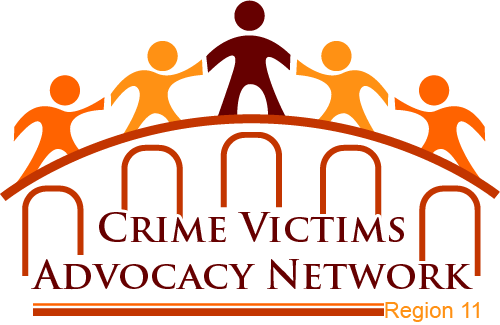Advocates are a phone call away. The Crime Victim Advocacy Network is a Victim-Centered and Victim-Driven program. We are here to listen to you, help prioritize your needs, answer your questions, and offer whatever assistance we can to help get you through this difficult time. Many victims have questions about what they are experiencing, what to expect if a court case is pending and what their role is, community resources or crime victim compensation benefits they may qualify for, questions about restitution, or about the services we offer. Some victims call with general questions and others for more extensive assistance. It is important to us that you get the correct answers you need, when you need them. All of our services are free and confidential, and interpreter services are offered free of charge when needed.
To find an Advocate in the county you reside in, click on the “Contact Us” link and give us a call.
As a victim, you may be called to testify as a witness should the case proceed to trial. If your testimony is required, you will receive a subpoena.
You may request restitution for any medical expenses or property damage/loss as a result of the crime. You may receive paperwork in the mail from the Prosecutor’s Office entitled “Victim Restitution Estimate” if your case is eligible for restitution. The defendant is responsible for payment of restitution if ordered by the court. Victims may attend the defendant’s court hearings. Please advise the victim advocate on the case if you wish to attend any court hearings or give a VIS at sentencing.
In preparation for trial, the Defense attorney or a Private Investigator hired by the defense attorney may request an interview with victims or witnesses in the case. The Deputy Prosecutor may also wish to interview you. You have a right to have a Victim Advocate accompany you to any interview and be present with you at the time of the interview. The Advocate’s role is to provide emotional support to the victim during the interview.
Victims should submit restitution requests as soon as possible to be ordered at the sentencing of the defendant. The Prosecutor’s Office has limited time under the law to have restitution ordered back to you, so it is important you submit your request as soon as possible.
If restitution is ordered in your case, the defendant would be required to pay the Court Clerk’s office, who would then distribute the restitution payment to you via check.
If you have been a victim of a violent crime (eg: assault, robbery, vehicular assault or homicide, DUI Injuries) or a survivor of homicide, you may be eligible for Crime Victim Compensation (CVC) through the Washington State Department of Labor and Industries CVC Program. CVC Staff review every application for compensation eligibility and will make a determination based on State law and program requirements whether you are eligible. The CVC program is the “payer of last resort,” and victims of property crimes are ineligible for CVC assistance. Our Advocates can offer assistance with the application process. You can learn more about the program and download an application at the CVC website below or by calling the CVC program toll free at 1-800-762-3716 or 360-902-5355.
http://www.lni.wa.gov/ClaimsIns/CrimeVictims/default.asp
No. You do not need to have a social security number, nor be a legal resident to receive services. You do NOT have to share your immigration status with us. This is a confidential program, and our advocates are solely concerned with helping you as a victim or survivor of crime. If you are a victim or survivor who is not a legal resident, you may be eligible to apply for a U-Visa or T-Visa (for Human Trafficking Victims), that would allow you to stay in the country. For more information:
https://www.uscis.gov/humanitarian/victims-human-trafficking-other-crimes/victims-criminal-activity-u-nonimmigrant-status/victims-criminal-activity-u-nonimmigrant-status
